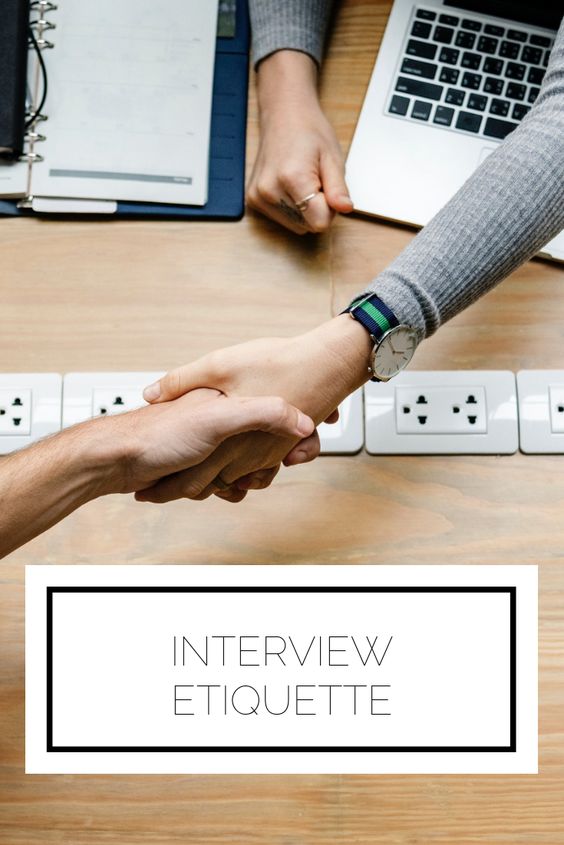A while back I asked on Instagram what etiquette topics you all were curious about, and interviews came up. Back in 2013 (as a senior in high school) I wrote a post on interview etiquette, and needless to say I have learned a lot more since then. While the basics certainly still hold true, today I’d like to give you some tactics to make the most of the interview opportunity.

Before the interview
Appearance: Modest is best, regardless of what style you’re going for. Try to get a feel through your research of what the dress code of the office is, and always err on the side of caution. Minimize any potential distractions; for yourself it may be jewelry you’ll play with, and for the interviewer it could be hair covering your face.
What to bring: Updated copies of your resume, a notebook and pen, personal business cards, a phone on silent.
What questions to prepare for: You want to have answers ready for the basic questions, such as “why are you a good fit for this job,” “what’s your greatest strength and weakness,” as well as being prepared to articulate why you are interested in this company and why you have chosen this particular career.
You should also prepare some questions to ask the interviewer, such as the company’s approach to training and development, how they progressed to their current role, etc.
*Bonus, since we’re getting off of the etiquette topic* Unless you’re interviewing for a highly technical role, it’s likely that you’ll be asked behavioral questions; the type that start with “tell me about a time when…” and then you’re prompted to tell a story about how you handled a particular experience in the past. I like to think of some overarching topics that I’ll probably be asked about, like dealing with challenging clients, asking for the sale/closing business, and prospecting for new accounts, and then I have some relevant stories for each category. The STAR method is particularly helpful.
Situation: what is the brief background of the situation you were facing
Task: what were you expected to accomplish
Action: what action did you take to accomplish your task in the situation you were in
Result: how did that work out for you
During the interview
Attitude: Be kind to everyone you interact with and demonstrate confidence with positive body language and a smile. A firm handshake and pleasant expression goes a long way.
Absolutely avoid speaking badly about your previous employer and make sure everything you share, even if it was a bad situation, has a learning experience to have made you a better potential employee.
What to avoid: Wait to ask about salary until you’re far enough in the interview process to have created demand for your skills and talents and feel you’ve established your worth. This will allow you to be in the best position to negotiate as needed.
Make sure you’re allowing your interviewer to get across their whole point and questions without interrupting. It can be tempting to jump in when you have an answer to what they’re asking, but don’t risk stepping on their toes during the conversation.
What to make sure you do: The question that really inspired this post was about how to know when to follow up after an interview. The best thing you can do during the interview is to ask what the expected timeline is on making an ultimate decision and the steps leading up to that point (how many more interviews? With who? Any presentations or other formats you’ll need to prepare for?). By asking what the next step is and when you can expect to hear back, you’ll know when to follow up. Be sure to get everyone’s contact information that you interview with. Also, you can decide if you want to ask this one question I highly recommend.
After the interview
Thank you note: Be sure to send a thank you note, whether via email or by mailing a note that same day. Reference something you discussed during the interview, reiterate your interest in the position, and let them know you are looking forward to hearing back on the timeline you discussed.
For example, if they said they were planning to conduct second round interviews next week and would get back to candidates by this Friday, you can say you’re looking forward to hearing back by the end of the week. This allows you follow up on Friday if you haven’t heard anything and then midway through the next week if they still haven’t gotten back to you.
Those are my top etiquette tips for having a successful interview. I have another post on informational interviews here, and an entire section dedicated to career here.
What tips do you have for a great interview?
-AJF



Leave a Reply